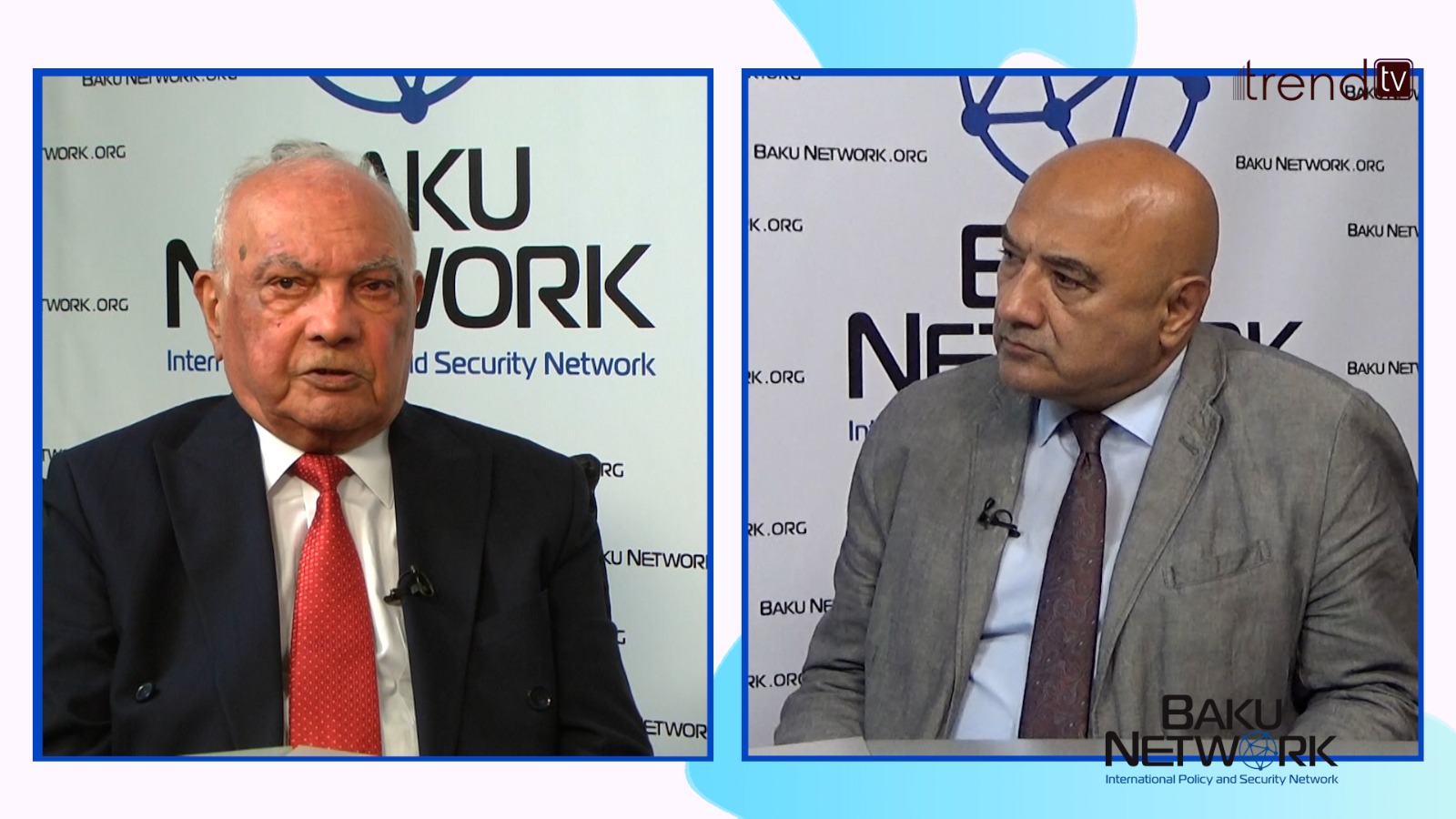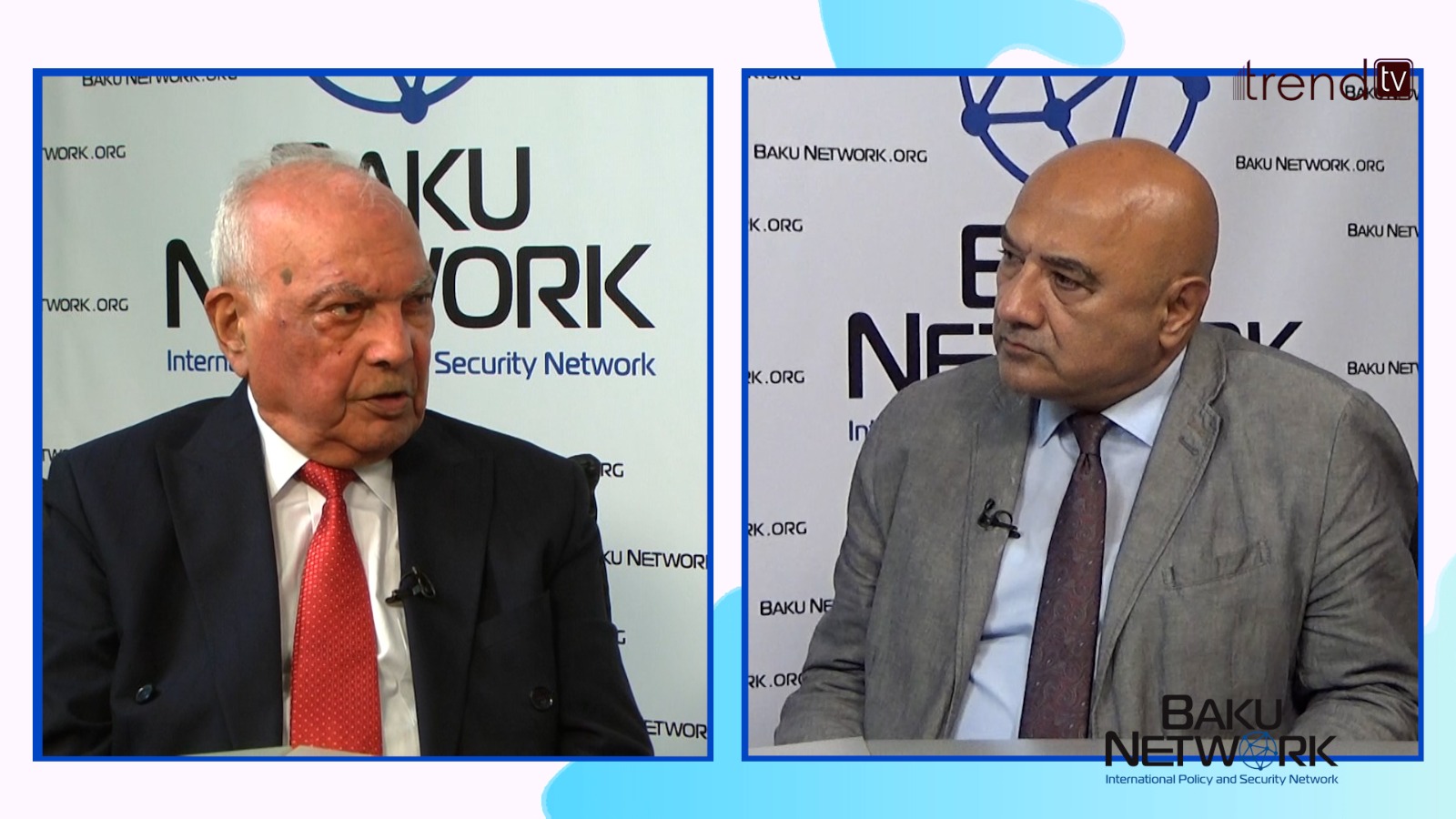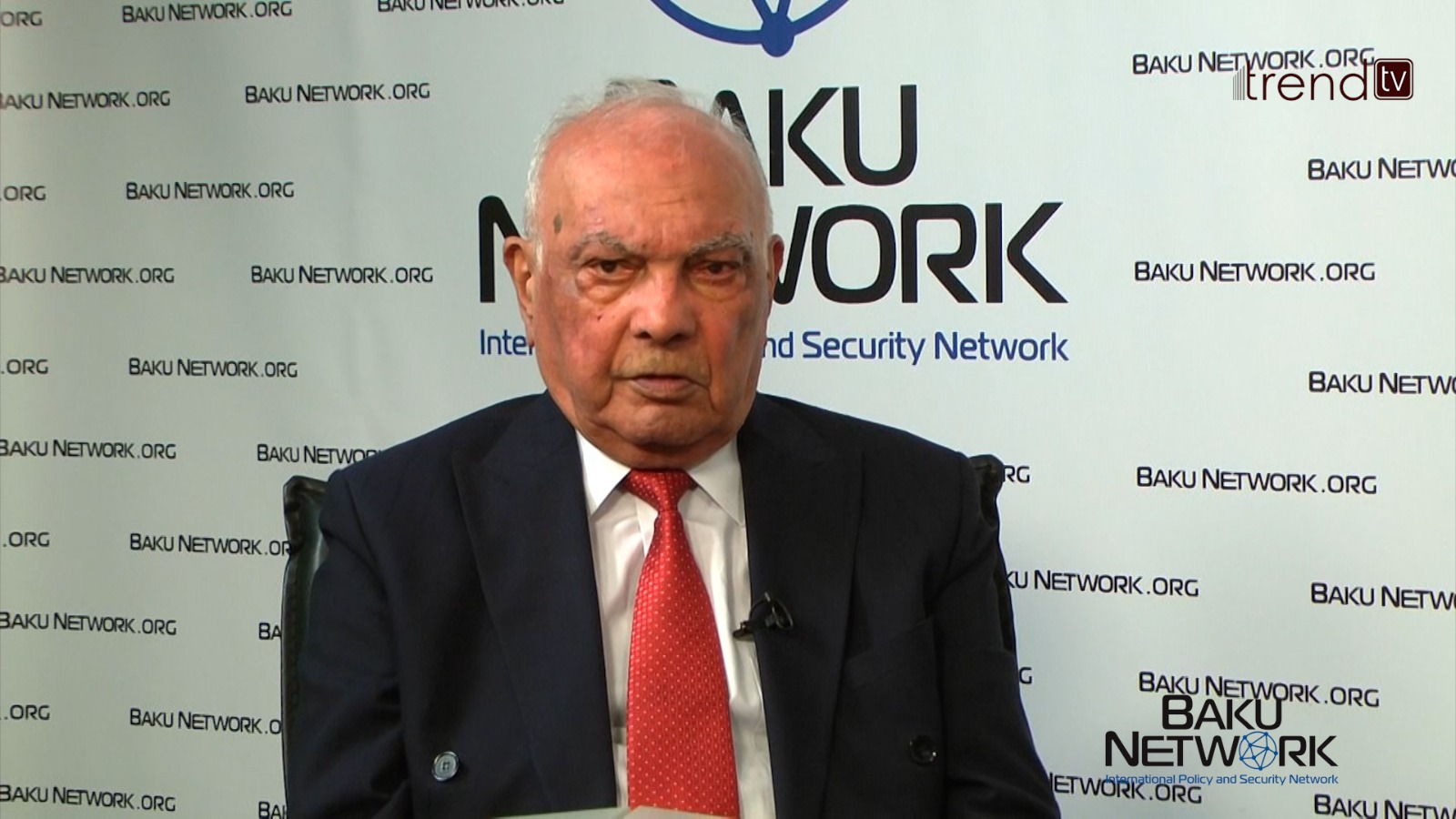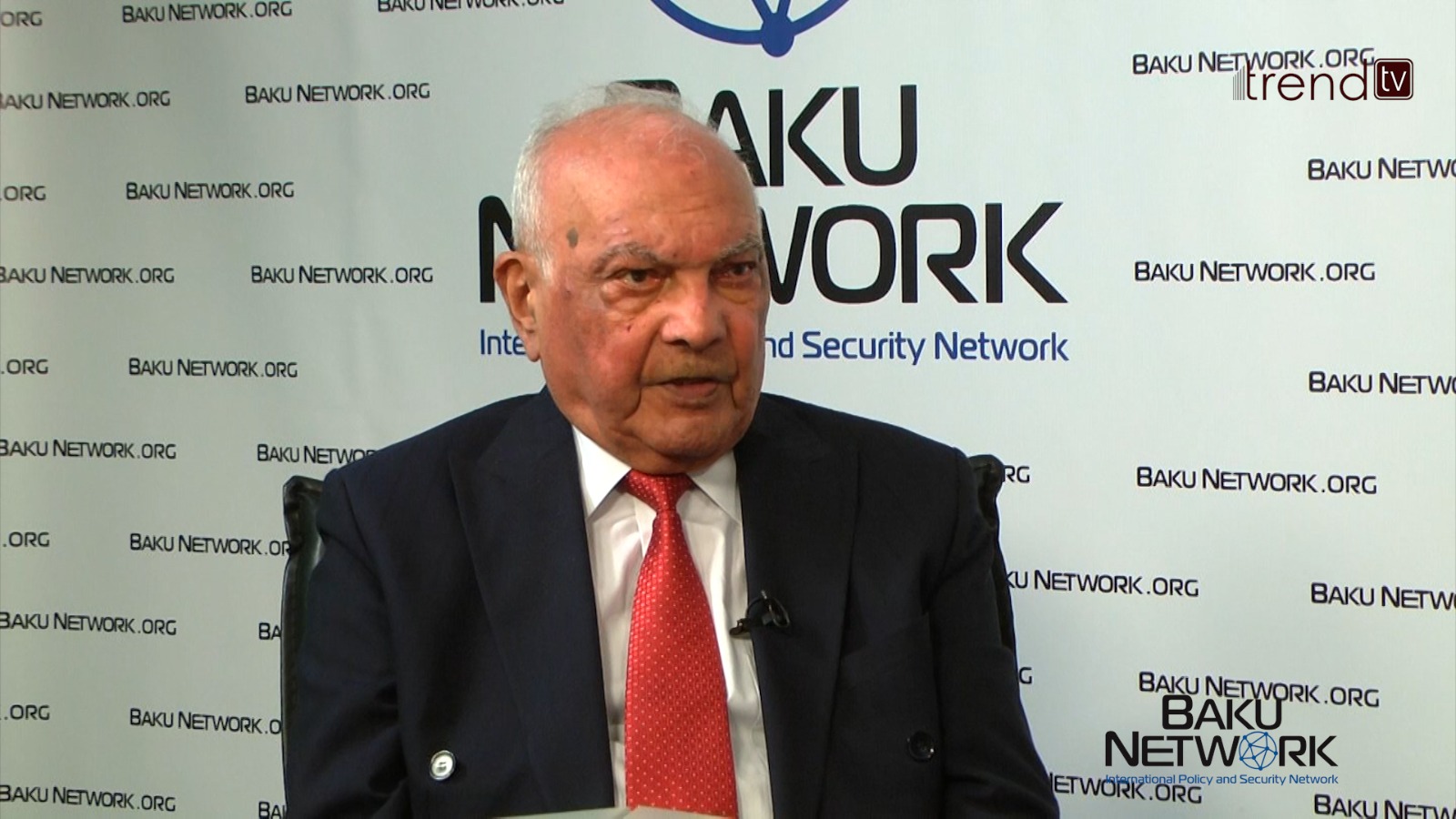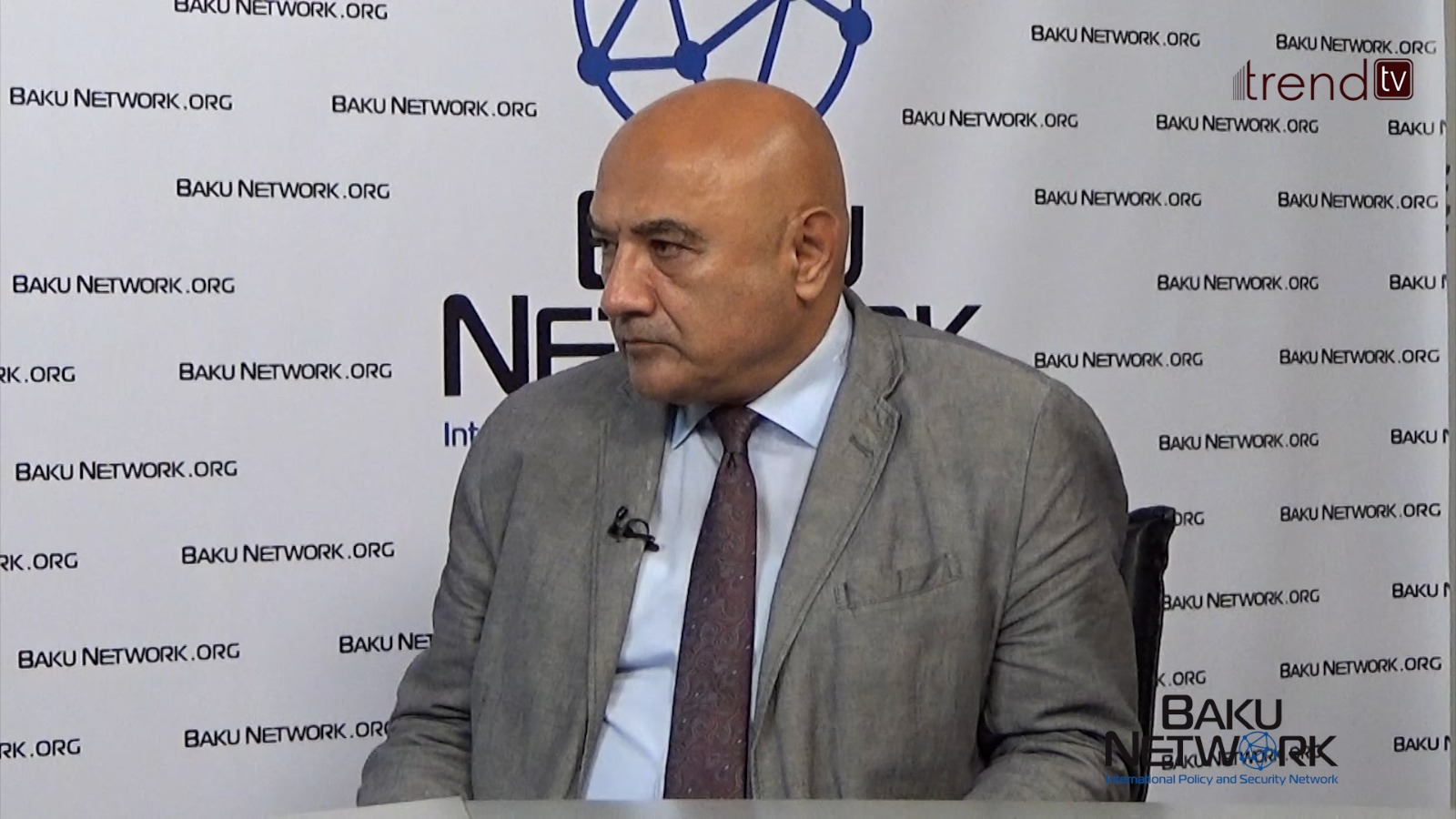BAKU, Azerbaijan, October 6. The Baku Network expert platform rolled out the next part of the analytical video series "Dialogue with Tofig Abbasov", Trend reports.
The guest of the program was Honored Artist of Azerbaijan, renowned composer Javanshir Guliyev, who not only shared his creative endeavors but also cast a line into the future of relations between Azerbaijan and Armenia.
Guliyev pointed out that Azerbaijan has weathered a stormy sea of war, and now society is up against a fresh set of hurdles.
"We've put end to the war, and now we need to decide on our future. We must develop a standard of communication with the people we recently fought. We are neighbors, and there's no escaping that. Life goes on, new generations are growing up, and we need to pave the way for normal relations," he said.
The composer noted that every war eventually ends, and history confirms this - even the 'Hundred Years' War' (ed.1337–1453 - between the kingdoms of England and France) ended. Therefore, in his opinion, it's especially important today to look forward, not be shackled by the ghosts of yesterday.
Guliyev mentioned that art and culture are the golden threads
that weave together the fabric of humanity.
He was all in, believing this is where the ball can start rolling:
through music, cinema, theater productions, literary projects,
festivals, and scientific conferences.
"Relationships must begin at the level of art, culture, literature, and cinema. And then, gradually, step by step, after some time, tourist traffic will resume. We have no other option,” he emphasized.
In the course of the dialogue, the composer elaborated on his
synergistic partnership with the esteemed film director Sergey
Parajanov, with whom he engaged in a collaborative endeavor on the
cinematic project 'Ashig Garib.'
The composer orchestrated the score for the cinematic piece, which
garnered accolades at global film festivals.
Guliyev drove home that Parajanov epitomized a pacifist ethos,
eschewing militaristic ideologies and refraining from yielding to
ethnonationalist fervor.
“I express my profound appreciation to the cosmos for the
serendipitous chance to collaborate with this exceptional
virtuoso.” He administered equitable treatment across the diverse
ethnic matrices of Armenians, Azerbaijanis, Georgians, and
Russians. “For him, the realm of artistic expression was the sole
reality, and he epitomized the quintessential global citizen,”
articulated the composer.
He also recounted how, at the height of the propaganda campaign in Armenia, Parajanov refused to sign an appeal to hand over Karabakh to Armenia, declaring that “no one gives away land for nothing.”
Guliyev also referenced the sentiments expressed by artist
Martiros Saryan, who faced scrutiny during the tumultuous period of
World War I for his choice to depict floral subjects amidst the
chaos of conflict. In response to the criticism, Saryan
articulated, "The war will conclude, and individuals will seek out
flowers. I create visual compositions for that specific temporal
juncture.
"This is the paradigm through which artistic cognition ought to
operate. Today, it is imperative to lay the foundational groundwork
for forthcoming endeavors," the composer stressed.
He also noted a strong conviction that the existing hiatus in
diplomatic engagement is not sustainable indefinitely.
Besides, Guliyev shared his impressions of the recent premiere of the 'Ashig Garib' film in Tbilisi, organized by international cultural foundations. According to him, third-party venues can currently serve as a point of contact for Azerbaijanis and Armenians until direct cultural ties are restored.
The cinematic presentation was delivered in enhanced resolution, subsequently leading to a dynamic discourse wherein emerging directors from Azerbaijan, Armenia, and Georgia engaged in a robust exchange of perspectives.

